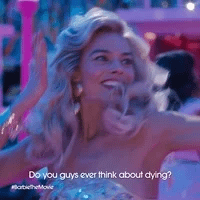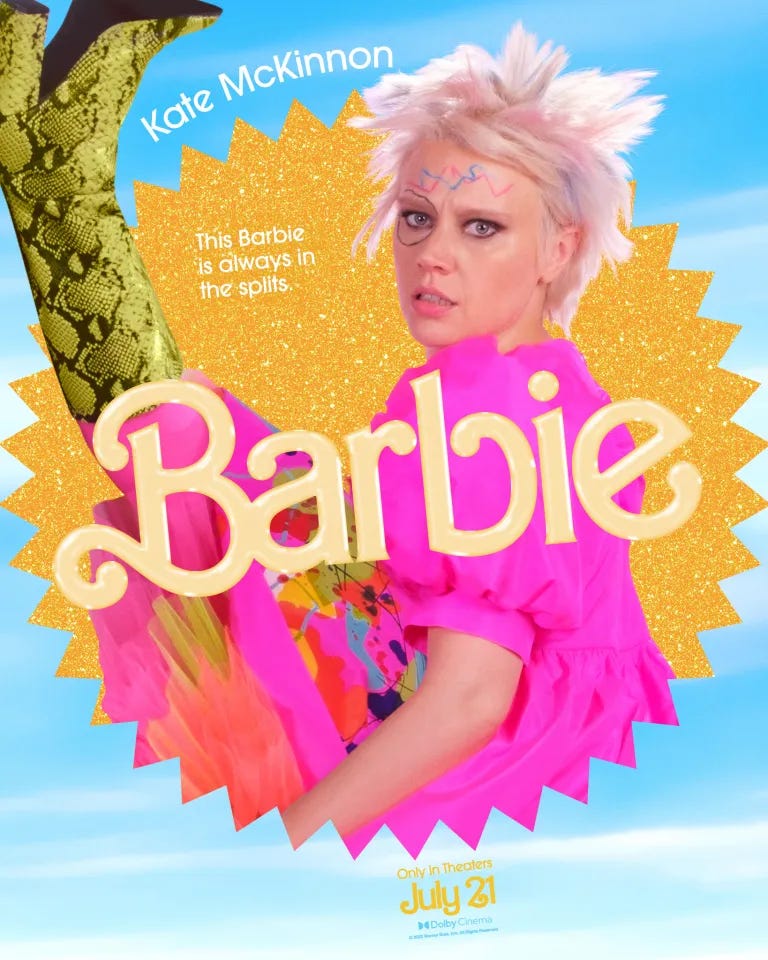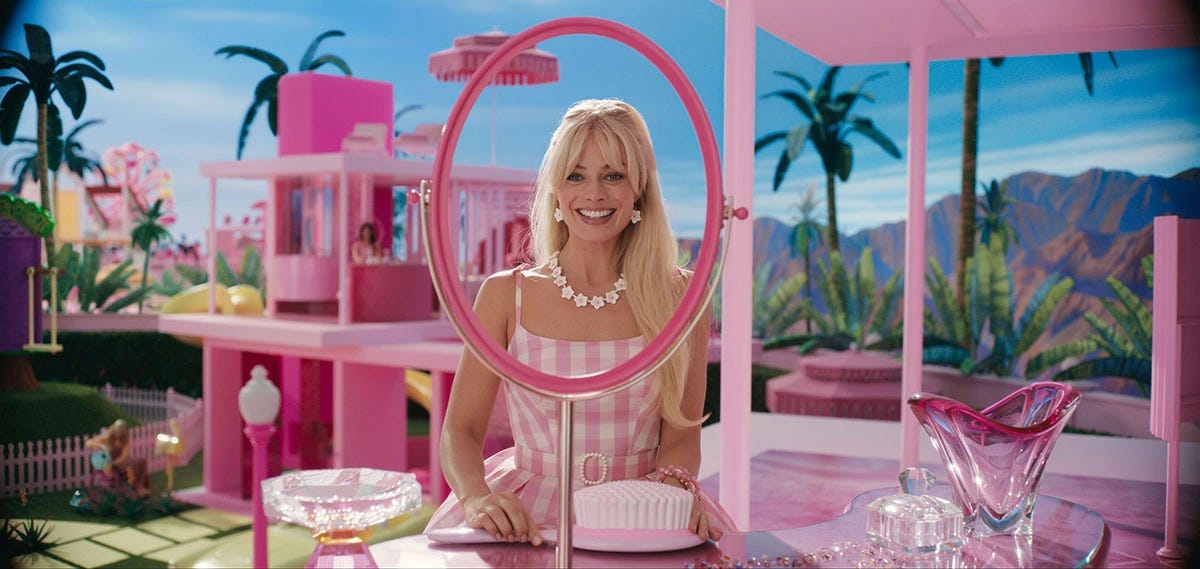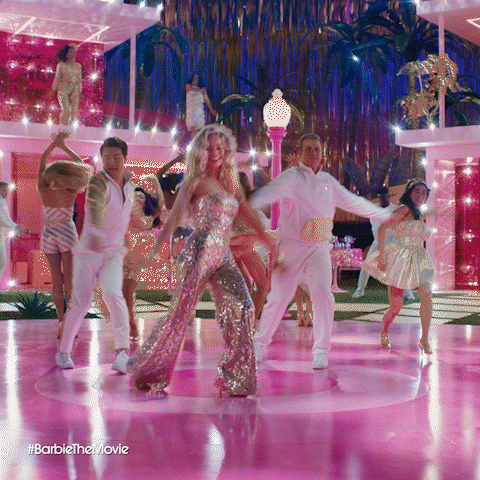Barbie's Mirror, Saul Bellow, and the Meaning of Death
BARBIE: (grinning nervously) "Do you guys ever think about dying?"
WARNING: MILD “BARBIE” MOVIE SPOILERS BELOW!
It’s hot and dark, the music is pumping. I’m wearing my cutest, most sparkly outfit, my hair is bouncing to the beat, and there’s nowhere I’d rather be than dancing in the club with my friends. As the rhythm pounds and the music swells to a crescendo, I close my eyes and there, in the middle of the dance party, I wonder:
“Am I really, someday, going to die?”
Obviously. What better time to contemplate the inevitability of death than in the midst of heart-pumping life?
This was the moment Greta Gerwig’s BARBIE won my heart. Because you can’t say anything profound about life without also talking about death.
Barbie’s bass-drop epiphany leads her to the amazing postmodern (post-structural?) Weird Barbie House, where Weird Barbie (Kate McKinnon) lays it out for her: the truth is out there, beyond Barbieland, and it has something to do with death.
You have to go to the real world. You can go back to your regular life, and forget any of this ever happened. Or you can know the truth about the universe.
Weird Barbie
It’s the idea that life is a limited resource that spurs Barbie on her quest for the truth, just as it is for all of us. Like her fellow wide-eyed female genius, Emily Dickinson (1830-1886), Barbie realizes something important: as scary as death is, it is also what gives life meaning:
That it will never come again
Is what makes life so sweet.
Emily Dickinson, Poem #1741
Emily knew the score. The fact that Barbie, who until this moment has lived happily in the Barbieland edition of Plato’s Allegory of the Cave (380 B.C.E.), believing she’s living in reality when in fact she’s confronted only images of “the real world” and is herself a mere shadow of a real-er reality OUT THERE, is able to even have this insight, is the true mystery at the heart of the film. Where do ideas come from? How do we make meaning of our own lives? Is it possible to understand the world and our role in it by ourselves, or is it the interaction with and gaze of others that make us… real?
Without diving into whether Barbie is a stealth sequel to THE MATRIX (will Barbie choose the high heel or the Birkenstock?) and the implications of Jean Baudrillard’s definition of the simulacrum, (I said MILD SPOILERS, OK?), the BARBIE movie faces right up to the question all humans eventually confront: WTF do I do about death?
I won’t fully spoil the film, so I’ll just say that it’s here that Barbie’s relationship with Ken, that handsome, useless, sexless, companion, provides Barbie with a lesson in how to make meaning of this brief, useless, probably meaningless life.
“Humans only have one ending,” Barbie is told, but “ideas live forever.” But, as Barbie realizes, “I don’t have an ending.” After her philosophical epiphany, she learns the price of this eternal life-style. Without death, she’s not really living. This isn’t enough for Barbie. “I want to do the imagining, not be the idea,” Barbie says.
At this moment I realized I’d missed one of the key images of the film, tucked into the very beginning: Barbie’s mirror.
Early in the film the audience watches Barbie go about her morning routine, showering, eating breakfast, and primping in front of her “mirror.” But it’s not a mirror; it’s an empty frame. We see it from our own POV, which means we see Barbie. But what does Barbie see? The film never answers this mystery.
But Saul Bellow did.
Bellow (1915-2005) won the Nobel Prize for Literature in 1976, a year after the publication of his novel about the power of art in a commercial world, HUMBOLDT’S GIFT. The novel also shares a few themes with the BARBIE movie, from questions of identity, friendship, influence, and, of course, death. Here’s what Bellow wrote in HUMBOLDT’S GIFT about death:
Death is the dark backing that a mirror needs if we are to see anything.
―Saul Bellow, Humboldt’s Gift (1975)
He’s so right. When the BARBIE movie begins, Barbie’s mirror is transparent, nonexistent. But by the end of the movie… I won't spoil it for you. I’ll just leave you with a quote from the film’s true philosopher, Weird Barbie: “She’s not dead, she’s just having an existential crisis.”
Thanks for reading Continuous Small Treats!
xo Buzzy










